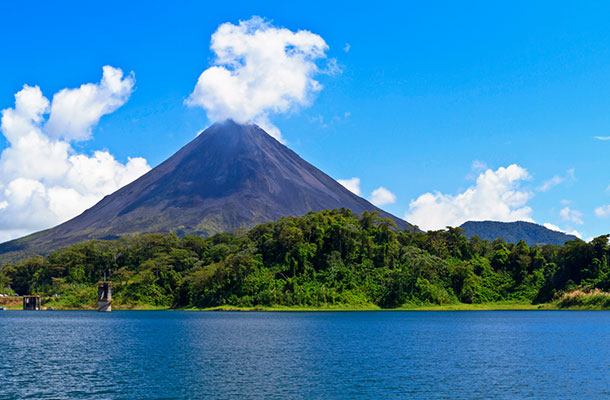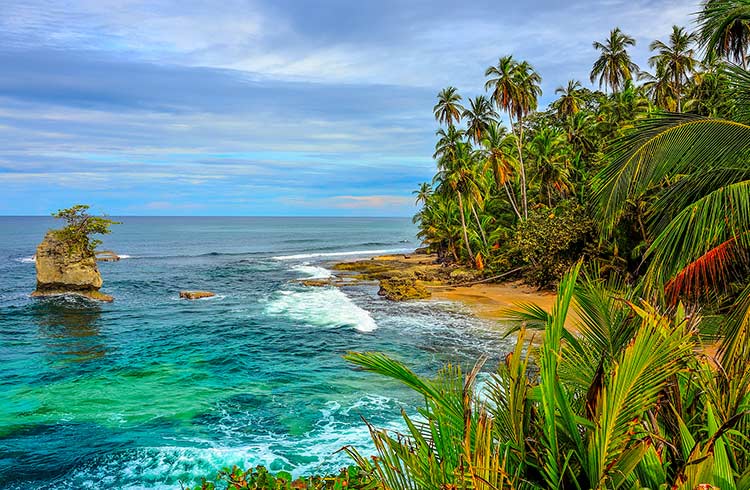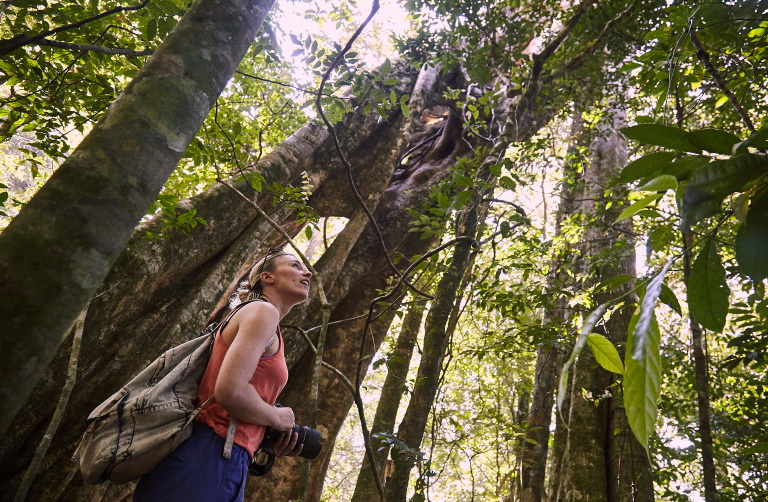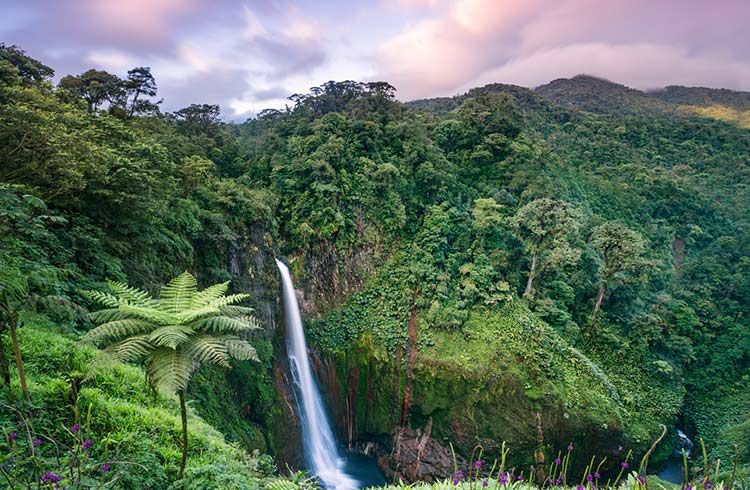Natural Dangers in Costa Rica: 7 Tips for Travelers
Coronavirus (COVID-19) and travel: The situation around the world is changing dramatically. Various governments have changed their travel warnings to restrict travel during this time. To understand how this may impact cover under your policy, please go to our FAQs and select your country of residence.
For the latest travel warnings and alerts around the world, read about lockdowns and border restrictions.
Costa Rica experiences volcanic eruptions, earthquakes and extreme weather each year. Be prepared for natural hazards with these tips.
Shares
 Photo © iStock/lightphoto
Photo © iStock/lightphoto
For a relatively small country, Costa Rica has a lot of geological and geographic variety, and this unique ecosystem comes with a number of potential dangers, too. Be aware of what might happen and understand how to stay safe with these tips.
Volcanoes in Costa Rica
Costa Rica has 16 volcanoes, several of which are considered active. They have been relatively quiet and stable over the last few years and haven't caused any widespread damage, but the possibility of eruptions always exists. The popular Arenal volcano has regular activity and a few others have been active in recent years.
If you hiking around one of the many volcanoes, you should check with the National Parks Service for updated information and you should preferably use a guide. Don't enter prohibited areas, which are clearly marked, and take notice of any warnings or signs.
Earthquakes in Costa Rica
The possibility of earthquakes occurring in Costa Rica is high due to its geographical location. An earthquake of magnitude 6.2 struck central Costa Rica in 2009, resulting in the deaths of 32 people. The epicenter of this quake was in Alajuela Province. There were further earthquakes in May 2010 measuring 6.1 and 6.2 near Quepos and Manuel Antonio. The most recent earthquake was in 2017, 10 mi (16km) southeast of Jaco, with a magnitude of 6.5.
Oceans and rivers in Costa Rica
Strong coastal currents, including rip tides on the Caribbean and Pacific coasts, can make swimming dangerous. Most beaches and swimming areas are not patrolled by lifeguards, so be cautious. Keep in mind that every year there are reported deaths of travelers who drown due to rips or sudden drop-offs in shallow water. Even the strongest of swimmers should use caution. And, of course, children should always be closely monitored.
Costa Rica is a popular destination for extreme sports enthusiasts. Check the safety standards for any operator you choose. Sufficient life jackets for rafts and adequate safety equipment for jungle canopy tours may not be provided. Additionally, two crocodile attacks have been reported on the Pacific Coast. Be extremely cautious if hiking near a river. Use of a guide for nature tours is strongly recommended.
Extreme weather in Costa Rica
The hurricane season lasts from June to November, but Costa Rica is fortunate to be located in an area that is usually protected from a head-on hit. The danger of hurricane season lies with the heavy rains that accompany this severe weather pattern which can result in landslides, mudslides, flooding and disruptions to essential services. Landslides and flooding occur mostly in the Atlantic Ocean side of the country.
Costa Rica is a tropical environment consisting of two seasons; rainy and dry. The rainy season occurs from May to November and the dry season from December to April. The average yearly precipitation is 100 inches nationwide. The excess rain in extremely humid areas or even in dry areas, where the soil can't handle the amount of water, may cause floods that can devastate crops, destroy houses and may result in deaths.
In November 2010, heavy rain caused deadly landslides that killed 27 people and injured several others. Many roads were flooded or blocked by landslides.
General advice in Costa Rica
Always monitor local and international weather updates from the World Meteorological Organization and the National Hurricane Center while traveling so that you will have a better chance to prepare for anything that nature sends your way.
Costa Rica has built an efficient disaster response system and has established an effective system of building codes, environmental standards, and adequate land usage that mitigates the impact of natural disasters.
Get a travel insurance quote for Costa Rica
You can buy at home or while traveling, and claim online from anywhere in the world. With 150+ adventure activities covered and 24/7 emergency assistance.
Related articles
Simple and flexible travel insurance
You can buy at home or while traveling, and claim online from anywhere in the world. With 150+ adventure activities covered and 24/7 emergency assistance.
Get a quote


1 Comment
more information